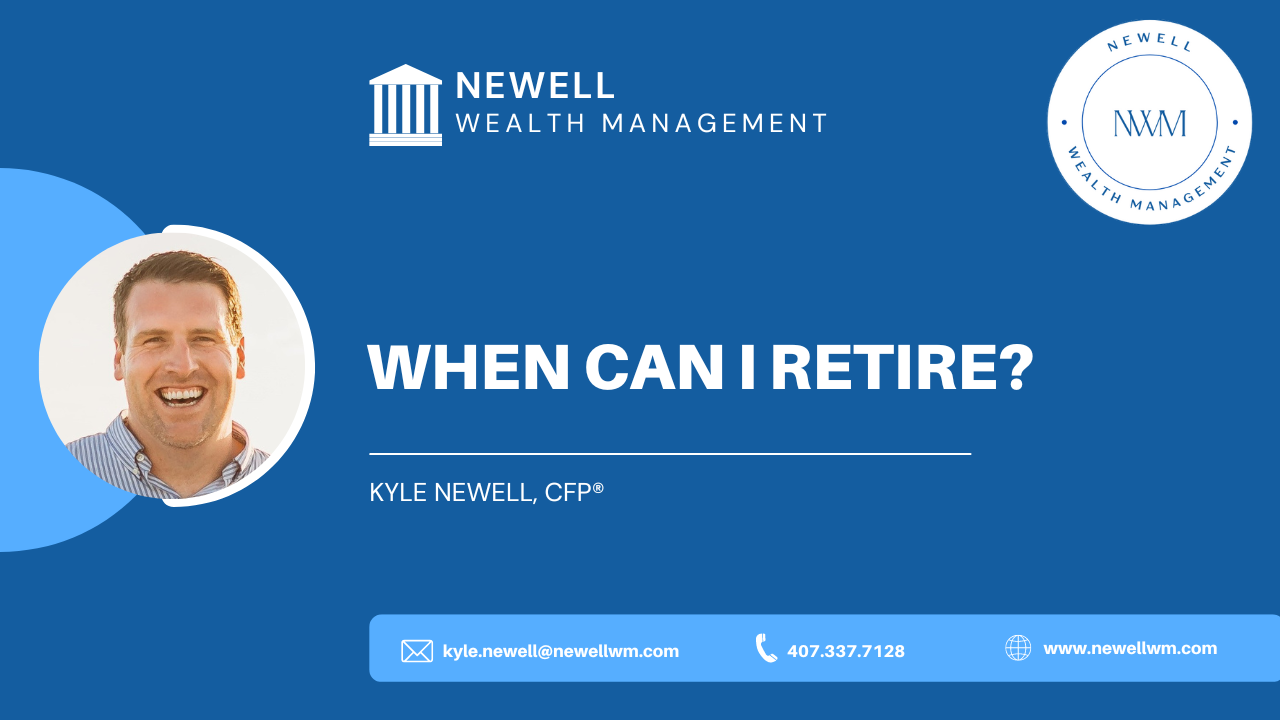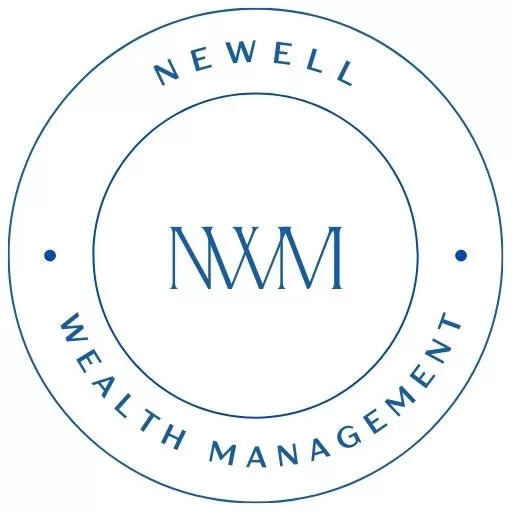When Can I Retire?

I had a conversation a while back with a Disney cast member regarding the most frequent question guests ask. Without hesitation, she responded that the most frequent question she gets when working is, “When’s the three o’clock parade?”
She looked dumbfounded, and I laughed, but a cast member will never respond rudely. When someone asks her what time the three o’clock parade is, she smiles and answers, “Well, it’s at three o’clock.” On the surface, it seems pretty funny, but typically, a more profound question is being asked. What the guest often really wants to know is, “When will I see the parade from where I’m sitting?” The answer to that differs depending on where guests are located in the park.
“When can I retire?” is a question I get a lot. Whenever someone asks me this question, I think about the parade scenario. What my clients are asking for are more specifics like, “What does it look like?” or “Am I prepared to be able to retire?” The question of when you can retire is up to you, but there is more to the answer than just a number.
Some people are considering early retirement before or around age 60. Strategies and ways to make that happen do exist. Others do not want a long extended retirement at age 60, 65, or 70. They prefer to take shorter, almost sabbatical-type retirements throughout their working career. This idea means they are rested, relaxed, and refreshed on an ongoing basis rather than working, working, working until reaching a certain age where they can have fun. The idea of retirement certainly is changing.

For those getting closer to a more traditional retirement age, maybe late 50s to early 60s, this is a lot more pointed question. When you think about when you can retire, there are a few key ages that are the most common times I see people start to make these decisions and decide to retire. Let’s look at each one and the specifics surrounding each.
Five Key Ages
1) Age 59 1/2
The first one is at 59 1/2. Why 59 1/2? Why not 59 or 60? You would have to ask Congress why it’s 59 1/2 and not a nice round number. Nonetheless, at this age, some things start to change regarding your retirement accounts in particular.
For your traditional retirement accounts such as traditional 401 K, or traditional IRA, the age of 59 1/2 is when the 10% penalty for early withdrawal is dropped. Starting at this age, you can take money out of your 401 K or IRA. You will still pay ordinary income taxes on it but won’t have the 10% penalty associated with it. This goes for an annuity as well. There are ways around that 59 1/2 penalty. Still, for most people, that’s generally the first potential age when people start to think about retiring due to the drop off of penalties for retirement accounts which allow you access to those accounts.
2) Age 62
The following pivotal age is 62. It’s a possible retirement age, simply because that’s when one can start to claim Social Security. There are a lot of thoughts and opinions on whether you should or shouldn’t take Social Security at 62, but it is available to you at that time. It’s important to know that although it is accessible, it’s a reduced amount from where your full retirement age falls. Many people start looking at age 62 as the potential age to retire because they know they can at least start planning on Social Security. It’s a guaranteed source of income backed by the U.S. government, which makes it pretty secure. I am aware that some people have questions about the security of social security, but I digress.
3) Age 65
The following age people often look at is age 65. Some people think that’s full retirement age, but that is no longer the case. While it is still the age for some, most people now fall under 67 as the full retirement age. Still, at 65, one key switch happens that allows most people to have the opportunity to be able to retire. It’s the turning on of Medicare.
Medicare is different from Medicaid. Medicaid helps the low-income, low-asset members of society have health insurance coverage. Medicare is for the retiree. When you reach 65, you qualify for Medicare. This program is, in essence, subsidized by the U.S. government and makes health insurance inexpensive. For the most part, your average retiree at 65 can access relatively inexpensive health care through the Medicare program.
Whether it’s a Medicare Advantage plan, Medicare Supplemental Plan, or traditional Medicare, options are available. There are always specifics and some more expensive plans. Nonetheless, 65 is often a pivotal age for retirement due to Medicare availability.
Another reason age 65 is considered is pensions. I work with many Disney Cast Members on deciding when they should claim their pension. The majority of times, age 65 is the latest age for many pensions. For example, Disney’s pension maximizes at age 65. There’s no financial benefit to claiming it after that.
4) Full retirement age
Full retirement age varies depending on the year you were born. For some, it’s 65, but many people retiring now and into the future fall under 66 or 67. If you want to see your full retirement age, you can look at your Social Security statement or go online to the Social Security Administration website (ssa.gov). There, you will find out what your full retirement age is. Remember, this is the age when you can get the full benefit of your Social Security throughout your lifetime.
Let’s suppose your full retirement age is 67. It may be a good time to retire because you will get your full Social Security retirement benefits. If you wait until after 67, you will receive an increased benefit payout up to age 70. Still, many people use their full retirement age because the mid-60s is often when most people want to retire for a reason. Your body starts to tire out. Maybe you realize you are over the day-to-day “stuff” at your job. This brings us to the last important age, but it’s not a number.
5) Enough is enough
There is no specific age for this particular time because it is unique to you. It’s the point where enough is enough. You can’t predict at what age this will happen. I hear it over and over again from clients of all ages. “Enough is enough.”
People become tired of the rat race, the corporate bureaucracy, and the red tape. They say, “Enough is enough. I’m ready to retire.”
Hopefully, they have enough finances to retire. Sometimes they don’t, but they say, “It’s not worth my health. It’s not worth my sanity. I’m just going to stop, and I’ll make it work however I can.”

When and how much is enough?
It’s imperative to know when is enough and how much is enough. I was talking to a client recently who worked for a major corporation. He was at the point where he was just ready to retire. Thankfully his company offered a pension. He had saved and had access to Social Security as well. As we went through the financial plan, we realized he had enough savings to carry him through, even with the cost of health insurance and the uncertainties around that.
It was better for him financially to delay taking his pension, but he could still retire at age 60. We’re floating his expenses through his savings up until age 65. At that time, his pension will be more than enough for him to live on. At 67, he’ll take his full retirement age benefit as well. By running the numbers, we were to determine sooner than he thought. He could retire at age 60 rather than waiting until 65.
Seeing the number, he fell into the “enough is enough” bracket and decided to retire. Of course, assumptions are always involved, and each situation is different. Working together, we were able to show him how he could retire at 60 in a tax-smart way. He was even able to save some money on health care costs as well.
You now have some key dates to consider when thinking of when you can retire. As a refresher, they are:
- 59 1/2: Tax penalties drop off for traditional retirement accounts
- 62: Social Security benefits can begin
- 65: Medicare and pension eligibility
- 67+: Typically considered full retirement age
- The age where “enough is enough.”
The best time to retire is unique to each person. I would be happy to talk it through with you and offer assistance with your financial planning for retirement. We can meet virtually or in person if you are in the Central FL area. Please email me at kyle.newell@newellwm.com, call/text at 407.337.7128, or schedule a meeting at Schedule – Newell Wealth Management (newellwm.com)
Important Information
Newell Wealth Management, LLC (“NWM”) is a registered investment advisor offering advisory services in the State of FL and in other jurisdictions where exempted. Registration does not imply a certain level of skill or training. The presence of this website on the Internet shall not be directly or indirectly interpreted as a solicitation of investment advisory services to persons of another jurisdiction unless otherwise permitted by statute. Follow-up or individualized responses to consumers in a particular state by NWM in the rendering of personalized investment advice for compensation shall not be made without our first complying with jurisdiction requirements or pursuant an applicable state exemption.
All written content on this site is for information purposes only and is not intended to provide specific advice or recommendations for any individual. Opinions expressed herein are solely those of NWM, unless otherwise specifically cited. Kyle Newell and NWM are neither an attorney nor an accountant, and no portion of this website content should be interpreted as legal, accounting or tax advice. Material presented is believed to be from reliable sources and no representations are made by our firm as to other parties’ informational accuracy or completeness. There is no assurance that the views or strategies discussed are suitable for all investors or will yield positive outcomes. Investment involves risks including possible loss of principal and unless otherwise stated, are not guaranteed. Any economic forecasts set forth may not develop as predicted and are subject to change. All information or ideas provided should be discussed in detail with an advisor, accountant or legal counsel prior to implementation.
